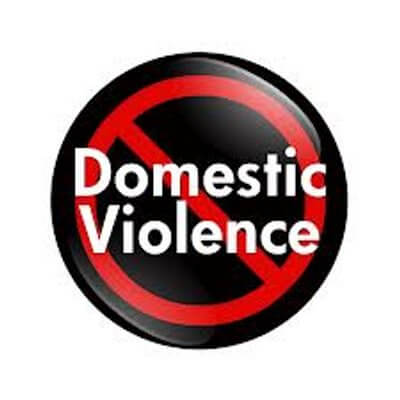This article is written by Vanya Verma from Alliance University, Bengaluru. This article talks about the domestic abuse bill, its various provisions, the amendment proposed in the bill, and then finally the Act.
Table of Contents
Introduction
The Domestic Abuse Bill has been clear since its publication in January 2019 that it will be a significant piece of law. It’s been a long time since it evolved from a consultation initiated in 2018 but then got postponed by the Parliament’s dissolution in late 2019 for the last general election.
The Domestic Abuse Bill for the first time established a cross-government statutory definition of domestic abuse and made it clear that domestic abuse can be emotional or economic and involves coercive and controlling behaviour and is not confined to physical violence. The bill created a new office of ‘Domestic Abuse Commissioner,’ whose responsibilities include providing public leadership on domestic abuse issues and managing and monitoring the provision of domestic abuse services in England and Wales. Another significant clause in the bill is that it protects victims of domestic abuse from being cross-examined in court by their former spouses. This has happened in the past, but it is now recognised as a type of abuse in and of itself.
Domestic abuse
Domestic violence is a harsh and complex crime that can strike anyone, leaving lasting physical and emotional wounds. While there has been a welcome gradual decrease in the frequency of domestic abuse, still domestic violence affects 2.3 million people aged 16 to 74 every year (two-thirds of them are women), and domestic abuse accounts for more than one-tenth of all crimes reported to the police
Currently, the most comprehensive definition of “domestic abuse” may be found in Practice Direction 12J Child arrangements and contact orders: domestic abuse and harm. Domestic violence is defined as “any event, or pattern of episodes, of controlling, coercive, or threatening behaviour, violence, or abuse (whether psychological, physical, sexual, financial, or emotional) between individuals who are linked with one another” in Legal Aid, Sentencing and Punishment of Offenders Act (LASPOA), 2012 Schedule 1 para 12(9).
The bill establishes a modern definition of “domestic abuse” that is more extensive than any previous definition. The inclusion of a definition of “domestic abuse,” as well as a modernization of Lord Scarman’s definition (in strict precedence terms, Lord Scarman comes before a Practice Direction), are both welcome. Physical abuse and threatening behaviour are included in the definition of domestic abuse, as is ‘controlling or coercive behaviour,’ which is significant. ‘Economic abuse’ and ‘emotional or other abuse’ are significant developments in statutory thinking.
Abuse has devastated the lives of far too many people. We must create a society that has zero tolerance for domestic violence and actively encourages victims, communities, and professionals to confront and challenge it, as well as provide victims with the help they need.
That is why the administration is dedicated to changing the way the country responds to this heinous crime, including by introducing this historic bill. The measure, as well as a larger program of action, is focused on preventing abuse and protecting victims.
Background
The Government was elected in December 2019 with a manifesto commitment to “help all victims of domestic abuse and pass the Domestic Abuse Bill,” which was first presented in the last Parliament. The goal of the Act is to equip victims with the confidence to come forward and report their experiences, knowing that the state will do everything it can to support them and their children while also pursuing the abuser.
The government held a public consultation on “Transforming the Response to Domestic Abuse” in April 2018, which received over 3,200 answers.
In January 2019, the government released its consultation response as well as a proposed Domestic Abuse Bill. The Government’s response included 123 legislative and non-legislative commitments aimed at raising awareness of domestic abuse, protecting and supporting victims and their families, transforming the justice system to prioritise victim safety and provide an effective response to perpetrators, and ensuring consistency and better performance in response to domestic abuse across all local areas, sectors, and agencies.
A draft bill
On 21 January 2019, the Lord Chancellor and the Home Office published, to press acclaim their joint Transforming the Response to Domestic Abuse: Consultation Response and Draft Bill January 2019. The main features of the bill are as follows:
- A definition of “domestic abuse” has yet to be found in statute or the common law, and is significantly broader and more specific than the previous one.
- A government-funded commissioner (or ‘tsar,’ as the press calls them) who is responsible for preventing domestic abuse and providing help to individuals who have been abused (Part 2).
- New police powers, as well as preventative notifications and orders (Part 3).
- Cross-examination of complainants is protected by a court-appointed lawyer (Part 4).
The various measures in the bill
-
Promote awareness
To place domestic abuse at the top of everyone’s agenda, including by introducing legislation for the first time that will include a statutory definition of domestic abuse.
-
To protect and support victims
This can be done by including and introducing a new Domestic Abuse Protection Notice/Order.
-
Transform the justice response
This can be done by assisting victims in giving their best evidence in criminal courts through the use of video evidence, screens, or with the help of some other special measures.
-
It will also improve performance
The new Domestic Abuse Commissioner will help to ensure that the response to domestic abuse is consistent and effective across all local areas and agencies.
In January 2019, the draft was released for pre-legislative scrutiny. On 14 June 2019, the Joint Committee on the Draft Domestic Abuse Bill released its report, and the response of the government was published on 16 July 2019. In February 2020, the government released a new response to the Joint Committee.
The Parliament website has documents relevant to the Domestic Abuse Bill. The bill includes a number of broad provisions aimed at better protecting domestic violence victims, and it is expected to have a substantial influence on family courts.
The bill prohibits abusers from personally cross-examining their victims and establishes a statutory presumption that victims of abuse are entitled to special remedies. It establishes a statutory definition of domestic abuse, emphasising that domestic violence can take many forms, including emotional, coercive, or controlling behaviour, as well as economic abuse.
The Bill will prohibit cross-examination in person in family procedures where one party has been convicted of, cautioned for, or accused with certain offences against the witness (or vice versa). In addition, the provisions will automatically prohibit cross-examination in person. Where a party and witness have an on-notice protection order in place, or when there is additional evidence of domestic abuse, the requirements will automatically prohibit cross-examination in person (broadly mirroring the criteria in the Legal Aid regime).
At the moment, the court has the authority to enforce such a prohibition, and while the Judge may occasionally ask questions on behalf of a party, this is largely seen as an imperfect remedy. The bill gives the court the authority to designate a legal representative to conduct cross-examination on behalf of a party who is unable to question the witness in person. This is akin to a practice that currently exists in the criminal justice system. The court-assigned legal representative will be paid from public funds and appointed only if the court determines that it is essential in the interests of justice.
The family courts must also evaluate if a person’s capacity to participate in the proceedings or give evidence is likely to be harmed as a result of their “vulnerability,” and, if so, whether one or more participation directions (“special measures”) are necessary to assist them (Part 3A of the Family Procedure Rules, 2010, supported by Practice Direction 3AA). There is no legal definition of “vulnerability,” but the court must evaluate factors such as the defendant’s age, mental competence, and whether they have any disabilities.
Domestic violence victims will be automatically eligible for special measures under the bill since the court will assume that their capacity to participate or give evidence will be harmed if they are not present. The court will then have to decide which (if any) of the various options are appropriate in the given situation.
On January 5, 2021, the House of Lords held its second reading of the Domestic Abuse Bill. The administration has stated that it is committed to enhancing the judicial system’s efficacy in protecting domestic violence victims and prosecuting abusers. The bill proposes a new Domestic Violence Protection Notice (DAPN) and Domestic Abuse Protection Order (DAPO) in addition to providing a statutory definition of domestic abuse that encompasses emotional, coercive, controlling, or economic abuse.
Protection for victims and witnesses in court
The heading of “protection of the victim,” Part 4 of the Matrimonial and Family Proceedings Act, 1984 adds a new Part 4B. (generally regarded as the statute which still is kicked about by amendment for many forms of family proceedings).
Part 4 is based on the Youth Justice and Criminal Evidence Act of 1999 (YJCEA). Yes, in criminal prosecutions, witness protection has an almost 20-year lifespan. Part 4 proposes that if an alleged victim is in danger of being abused again in court by being cross-examined by her alleged abuser, the court can appoint an advocate to cross-examine the alleged victim as the alleged abuser’s “representative” (proposed s 31V(5); see YJCEA 1999 Section 38(4)).
Domestic abuse protection notice
The bill creates Domestic Abuse Protection Notices (DAPNs), which a senior officer can issue if the officer has reasonable grounds to believe that the perpetrator has been abusive towards a person aged 16 or older or to whom the perpetrator is personally connected and that the officer has reasonable grounds to believe that giving the notice is necessary to protect that person from domestic abuse or the risk of domestic abuse. Non-contact or coming within a certain distance from the victim’s premises may be stated in the DAPN.
The DAPN essentially provides victims with instant protection before filing a non-molestation order with the court, before any criminal charges are filed, further restraining orders are issued, or any DAPO is issued.
The DAPN will set a 48-hour time restriction for an application for DAPO to be heard by the magistrates’ court from the time the DAPN is issued. This eliminates any unnecessary delay, providing the victim with quick protection once more. If a constable has reasonable grounds to think a person violates the DAPN, he or she may arrest that person without a warrant and bring them before a magistrates’ court within 24 hours.
The domestic abuse protection order
A person subject to a DAPN must be taken before a magistrates’ court within 48 hours to have a DAPO application heard.
In general, a DAPO can be obtained in one of four ways:
- through an application
- during the family proceedings
- after the conclusion of criminal proceedings
- in civil proceedings
The court must be convinced on the balance of probabilities that the perpetrator has been abusive against a person aged 16 or older or to whom the perpetrator is personally linked, and that the order is required to protect that person from domestic violence or the threat of domestic abuse perpetrated by the perpetrator. The perpetrator would then be subject to specific limitations, as determined by the court. Any violation of the order is considered to be an offence.
The main difference between the proposed plan and the current non-molestation order is that the DAPN can be requested by the police, providing urgent interim protection. In addition, various other people or organisations will be able to apply for DAPO, which is another benefit of the new proposal.
Amendments in the bill
On March 1, 2021, further revisions to the bill were announced:
- Firstly, the new legislation on controlling and coercive behaviour would be expanded to include circumstances where the abusers and victims continue to live together. This change recognises that abusive partners can maintain, or even escalate, their controlling or coercive behaviour even after physical separation.
- Secondly, the law governing “revenge porn,” which was initially enacted in 2015, will be expanded. Rather than only criminalising the sharing of intimate photos, the Bill makes threats to publish intimate images with the purpose to cause distress, a crime punishable by up to two years in jail.
- Finally, there will be a new crime of non-fatal strangulation. This might result in a sentence of up to 5 years in prison. Abusers often use non-fatal strangulation to control or terrify their victims, but it seldom results in injury. The bill will make prosecution easier and will remove an anomaly that has allowed abusers to avoid punishment in cases when they had stopped abusing people before they died.
- Further amendments to the Bill are aimed at supporting victims and offering better protection from perpetrators of domestic abuse. As the Lord Chancellor commented, “This Bill provides a once-in-a-generation opportunity to strengthen our response to domestic abuse and its many forms”. The Safeguarding Minister called it “…a game-changing piece of legislation.”
Domestic Abuse Act
On April 29, 2021, the long-awaited Domestic Abuse Act obtained Royal Assent. It has finally made it onto the law book after multiple delays to the parliamentary calendar, including the prorogation of parliament and the COVID-19 pandemic.
The Act includes provisions that are important to family proceedings as well as substantive and procedural reforms to the criminal code. The following are the key provisions of the Act:
- The Act establishes the first statutory definition of domestic violence, which encompasses not only physical violence but also emotional, coercive, and controlling behaviour, as well as financial abuse. This can be restricted to a single action or a sequence of actions. If children watch, hear, or suffer abuse in the family, they will henceforth be legally recognised as “victims” rather than “witnesses.”
- The Act has broadened the definition of coercive and controlling behaviour to include abuse after a divorce. The charge, which was first created by the Serious Crime Act, 2015, has witnessed a rise in instances every year, but the term “personally connected” will now be expanded to encompass ex-partners and family members who do not live together. This will almost certainly lead to more investigations and prosecutions for this offence. The expanded version of this commentary can be found in Controlling and Coercive Behaviour: Widening the Net.
- The Act creates a statutory presumption that victims are eligible for special measures in criminal, family, and civil courts. Victims of crimes are no longer allowed to be cross-examined by the person who is accused of committing the crime against them.
- High-risk criminals may now be subjected to polygraph testing as a condition of their licence after being released from custody. Domestic violence offenders may be subjected to regular polygraph exams to establish whether they have violated their release conditions, despite the fact that it is not 100 percent reliable. If a person’s risk is assessed to have grown, they may be sent back to prison. Lie detection tests for convicted domestic abuse offenders are a costly distraction.
- Domestic Abuse Protection Notices (“DVPNs”) have been given expanded powers by the police. Victims are provided with immediate protection from perpetrators and are required to leave their homes for up to 48 hours. Following a police application, magistrates’ courts can now issue Domestic Abuse Protection Orders (DVPO). It is proposed that implementing mandatory steps on offenders to improve their behaviour, such as receiving mental health help, will reduce domestic violence offending.
- These powers are likely to be utilised widely in place of Domestic Violence Protection Orders (“DAPOs”) and Domestic Violence Protection Notices (“DVPNs”), as the police are expected to respond to more than one million incidences of domestic abuse each year. Individuals who violate the terms of a DAPO will be charged with a criminal offence punishable by up to five years in jail or a civil penalty for contempt of court.
- Local governments will be given a legal obligation to guarantee that victims and their children are placed in a refuge and other safe places. All persons who become homeless as a result of domestic violence will be considered to have a “priority need” for homelessness support.
- The Act establishes a legal basis for the guidelines that support the Domestic Violence Disclosure Scheme (often known as “Clare’s law”). Anyone can ask the police whether they or someone they know is in a relationship with someone who is potentially abusive to them under the scheme. However, according to a recent Guardian article, the 35-day deadline for responding to a “right to ask” request is being missed in 23% of cases.
- The Act establishes a new crime of non-fatal strangling (which includes suffocation). The purposeful strangulation of another person or any other act that affects a person’s breathing is considered non-fatal strangulation, and offenders might face up to 5 years in jail.
- It broadens the definition of ‘revenge porn,’ or disclosing intimate photographs without the individual’s consent, to include the threat of disclosing intimate images to cause anguish. The maximum sentence of two years in prison is still in effect.
- Creates a statutory presumption in criminal, civil, and family courts that victims of domestic abuse are eligible for extraordinary measures. Clarify when a judge can issue a banning order under Section 91(14) of the Children Act, 1989 to stop family procedures from further traumatising victims.
- Extend the extraterritoriality of criminal courts in England and Wales, Scotland, and Northern Ireland to include further violent and sexual offences.
- Prohibit GPs and other general practitioners from charging a domestic violence victim for a letter supporting an application for legal assistance.
- Allow for the creation of a statutory code of practice for the handling of domestic abuse data for immigration purposes.
- Defendants raising the defence of consent to significant harm for sexual enjoyment face a theoretical statutory bar under the Act. Following the decision in R v. Brown (1993), the purpose of the Act was to clarify the law on consent. For public policy reasons, the Courts have decided in Brown and related instances that a person cannot agree to violent assaults, such as those that cause genuine bodily harm. It was stated that individuals were frequently using the so-called “rough sex” defence, claiming that the death occurred inadvertently during “rough sex” with the victim’s permission and that this amendment was needed to address this.
- The position of Domestic Abuse Commissioner was created for the first time, and it is the first of its type. Nicola Jacobs, who has taken on this responsibility, has stated that the legislation will not change things overnight, that there is still more work to be done, and that she will be lobbying for additional reform.
Conclusion
When looking at the provisions as a whole, it appears that the government’s primary goal was to make protection more accessible, as evidenced by allowing DAPOs to be handled not only by family courts but also by civil and criminal courts, as well as allowing more people to make the application on behalf of the victim.
The Domestic Abuse Act of 2021 has been hailed as a watershed moment in the history of domestic violence legislation. However, several suggested modifications did not make it into the final Act, and some of the headline amendments aren’t as substantial as they were in earlier Bill iterations. Time will tell whether the legislation’s provisions will have the desired impact of protecting domestic abuse victims and enforcing stricter penalties on those who commit domestic abuse offences.
Reference
Students of LawSikho courses regularly produce writing assignments and work on practical exercises as a part of their coursework and develop themselves in real-life practical skills.
LawSikho has created a telegram group for exchanging legal knowledge, referrals, and various opportunities. You can click on this link and join:
 Serato DJ Crack 2025Serato DJ PRO Crack
Serato DJ Crack 2025Serato DJ PRO Crack










 Allow notifications
Allow notifications


